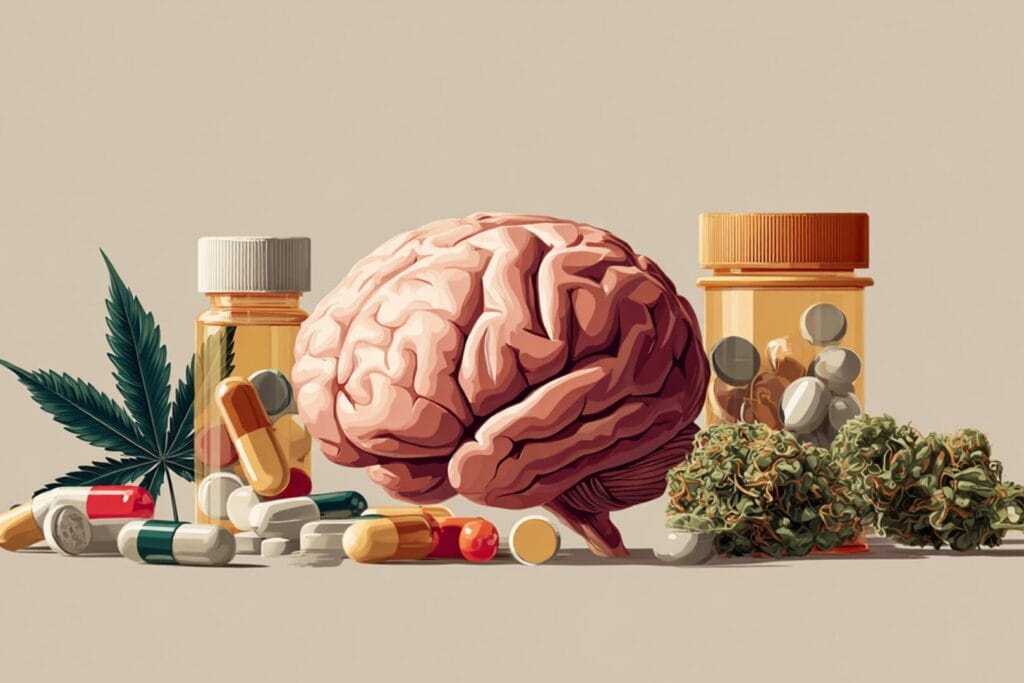When you’re recovering from addiction, it’s a journey where managing stress can play a pivotal role. As you’re navigating the complexities of recovery, stress can derail you, even when you’re entirely committed to sobriety. Addiction itself often shares a close relationship with high-stress levels, and there’s a cyclical relationship that can create a challenging dynamic.
Stress, and how to best manage it, is something that has to be thoroughly addressed for successful recovery.
The importance of stress management as part of addiction recovery can’t be overstated. Unmanaged stress increases the risk of relapse and can also affect your well-being and health overall.
Having a toolbox of effective stress management techniques can help you break stress-related cycles, reduce your risk of relapse, and create a better quality of life for yourself overall.
Incorporating strategies like exercise and mindfulness can help you gain control over your stress responses in recovery instead of letting them control you.
Managing stress goes well beyond a supplemental component of recovery. It’s the foundation for fostering resilience, rebuilding your life, and fully embracing a sober lifestyle.
The Role of Stress In Substance Addiction and Recovery
Stress has a multifaceted role in addiction and the recovery process.
Stress is a common trigger for both starting and continuing the use of substances. It’s fairly common to turn to alcohol or drugs to cope with or escape from stress. This is at least partially because of the temporary relief the substances provide from stressors and negative feelings. Over time, however, substance reliance as a coping mechanism can lead to addiction.
When you experience stress, your body releases hormones like adrenaline and cortisol, part of your fight-or-flight response. Substances can dampen intense reactions to stress and relieve the discomfort they cause.
Chronic substance use can change brain chemistry and reduce your ability to deal with stress naturally by impairing the neurotransmitter systems that regulate your mood and stress perception.
Stress can also trigger memories or cues that are associated with substance use and activate cravings. If you’re in the early stages of recovery, this can be especially tough because you’re still trying to build and solidify new coping strategies.
The Importance of Managing Stress in Recovery
Managing stress is critically important in addiction recovery for reasons including:
- Relapse prevention: Stress is the main relapse trigger. High-stress levels can evoke intense cravings and urges for substance use as a way to cope. By managing stress effectively during recovery, you can significantly reduce your relapse risk. Stress management provides you with alternative coping mechanisms to deal with challenging situations and emotions without resorting to substance use.
- Emotional regulation: Chronic stress impairs emotional regulation. This can lead to anxiety, depression, mood swings, and other emotional imbalances and disturbances. Learning to manage stress helps you maintain stability in your emotional state, which is critical for dealing with life’s challenges. With emotional stability can come a healthier mental state and continued substance abstinence.
- Better physical health: Stress can make physical health problems worse, but when you’re in recovery, poor health can itself become a relapse trigger and a reason for stress. With effective stress management, you can improve your overall health and be more engaged in your recovery activities.
- Cognitive function: Stress causes cloudy thinking, reduced cognitive function, and impaired judgment, making it hard to solve problems and make rational decisions. Managing stress improves your mental clarity so you can navigate your recovery process effectively with better decision-making and planning.
- Building resilience: Effective stress management increases your sense of resilience, which is your ability to deal with adversity and bounce back from setbacks. When you’re in recovery, resilience is what helps you handle the ups and downs of life without returning to addictive behaviors. Resilience enables you to face and overcome challenges, reinforcing your commitment to recovery.
- Stronger relationships: Stress can strain relationships, which may already be on shaky ground because of addiction. By effectively managing stress, you can interact with people more positively, rebuild damaged relationships, and create new ones. Strong and supportive relationships are a cornerstone of recovery.
- Quality of life: Managing stress healthily improves your quality of life. You can enjoy your life and fully engage in activities without the weight of poorly managed stress. A high quality of life reinforces the benefits of sobriety and a life in recovery.
When you focus on stress management in recovery, you can tackle the leading root cause of both substance use and relapse, setting the stage for lasting recovery.
How to Manage Stress in Recovery
If you go to a formal addiction treatment program, one of the areas you’ll work on extensively is identifying and applying stress management strategies. Examples of practical ways you might manage stress throughout your recovery process include:
- Cognitive-behavioral therapy (CBT): CBT is an approach to talk therapy that helps you recognize and then change your negative thinking and behavior. It can help manage stress because you can learn how to identify stressors, reframe your thoughts, and respond to challenges in healthier ways.
- Mindfulness meditation requires you to train yourself to focus on the present, accepting it without judgment. The practice can help reduce stress by promoting awareness and relaxation. Regular mindfulness has been shown to reduce anxiety and improve mood, so it becomes easier to deal with daily stresses and challenges that could otherwise contribute to relapse.
- Physical activity: Exercise is one of the most potent ways to reduce stress. It releases brain chemicals that enhance your feelings of well-being. Regular physical activity can boost your physical health.
- Sleep: Sleep helps maintain mental health, including stress management. Not getting enough quality sleep can worsen stress, increase relapse susceptibility, and decrease resilience.
- Nutrition: A healthy diet can help manage stress. A poor diet can, on the other hand, make your stress response worse.
- Hobbies: Engaging in enjoyable activities relieves stress and provides pleasure in accomplishment. You can take your thoughts and attention away from negative ones and cravings you might be experiencing.
These are just a few strategies you can incorporate in your daily life to manage stress effectively and support your recovery journey. Each person will find different and more effective methods, so explore all the options and see what works best for you. Contact us today to learn more about our programs.







